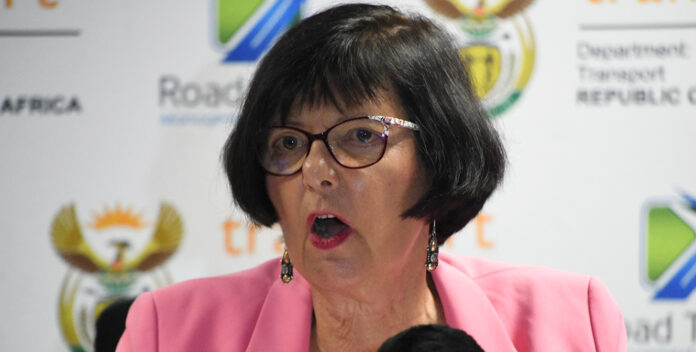Transport minister Barbara Creecy says she has lost confidence in the current dispensation to rescue the embattled Road Accident Fund (RAF) following proceedings at
last week’s parliamentary oversight meeting.
Dubbing the events a “fiasco”, Creecy’s comments suggest criticism not only of leadership failure in the RAF but also of dysfunction within its parliamentary oversight, collectively forming a broken ecosystem incapable of saving the fund.
Creecy expressed concern that the events during the high-profile session did little to restore public trust and may have complicated efforts to stabilise the troubled institution.
Her assessment follows the turbulent portfolio committee on transport meeting held on Wednesday, June 11, where parliamentarians pressed for answers from the RAF board, suspended CEO Collins Letsoalo, and deputy minister Mkhuleko Hlengwa.
Speaking on the Sunday World Engage podcast, Creecy did not conceal her disappointment, suggesting that the outcome of the committee’s attempt to intervene in the RAF crisis may have even undermined the broader reform agenda.
However, she refrained from naming individuals or explicitly stating the source of her disillusionment.
Tensions flared further when DA MPs objected to the committee chair’s decision to allow
Letsoalo, under suspension since May, to address members and defend himself against corruption and mismanagement allegations. The DA caucus staged a walkout, decrying what they termed a “circus” and accusing the committee of bias in the handling of proceedings.
Letsoalo’s suspension for missing a parliamentary appearance, announced by the RAF board, had already raised questions, especially given his recent whistleblowing on alleged misconduct among certain lawyers in the RAF system.
The decision to provide him with a platform the following evening added a layer of complexity to the already fraught meeting. Letsoalo seized the opportunity to repudiate charges of corruption, arguing instead that his efforts to reduce legal costs and initiate reforms had made him a target.
Creecy confirmed that this meeting took place on Tuesday ahead of the parliamentary session, to assess the board’s readiness to “put the Road Accident Fund back into good working order and primarily to be doing what it should be doing, which is to pay victims of road accidents compensation”.
Yet, Creecy’s attention quickly shifted to the proceedings in parliament, where the agenda became overshadowed by controversy. “It therefore means that as the shareholder minister, I’m going to have to take remedial action,” Creecy stated.
Such remedial steps could encompass changes to the board’s composition, new leadership appointments, or even broader reforms to the RAF model.
Years of financial turmoil, management struggles, and legal wrangling have weighed heavily on the RAF, an entity tasked with compensating road accident victims.
Creecy, meanwhile, emphasised that the RAF’s challenges are not confined to its leadership.
“The problem with the current system is that it requires the victim to prove fault. We need to move towards a no-fault system. I think that would, in a sense, take the attorneys out of the equation.”
She further advocated for a standardised compensation schedule: “If you break a foot, what do you get? If you have a head injury, what do you get? Because your level of compensation shouldn’t be determined by how good your attorney is.”
Creecy’s remarks signal that urgent reforms to the RAF, including to its governance and compensation models, are likely to be announced soon.



